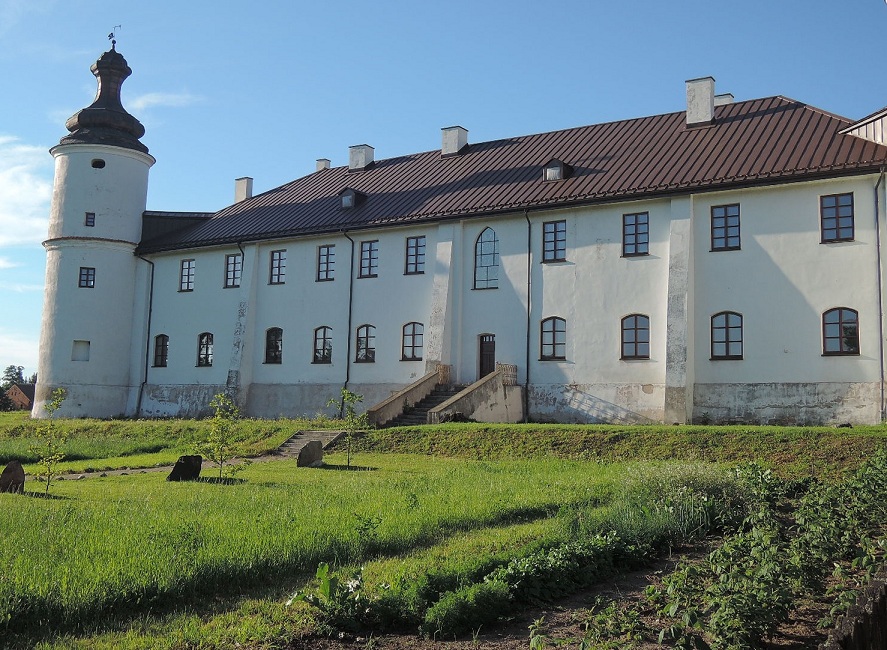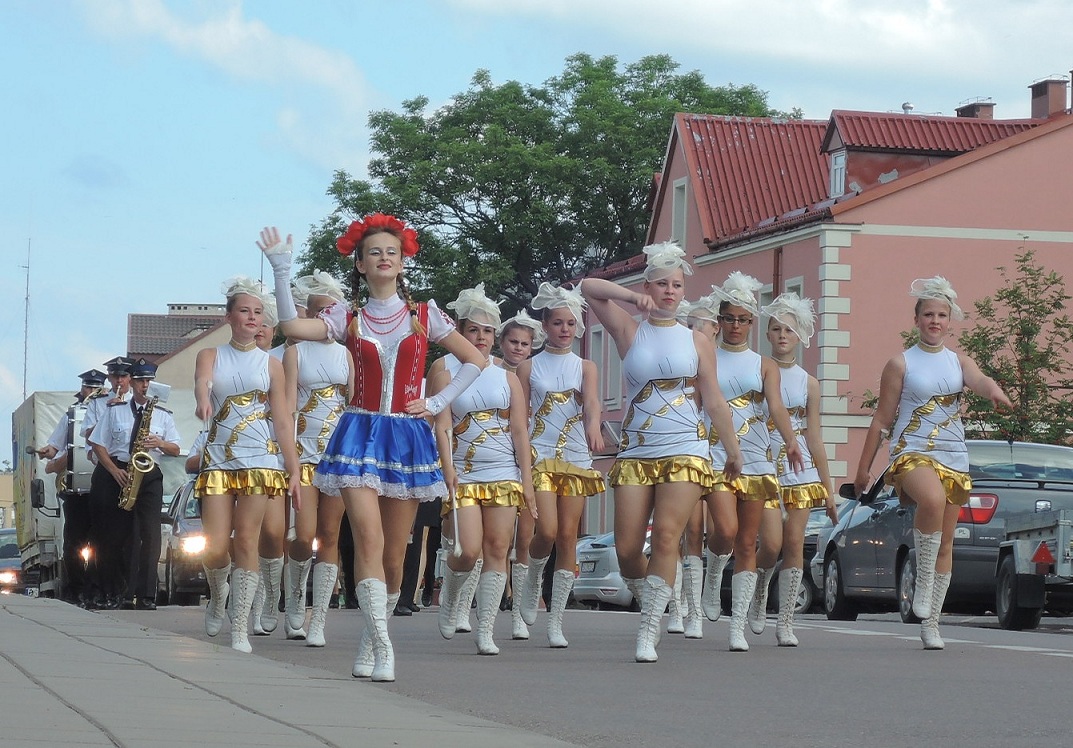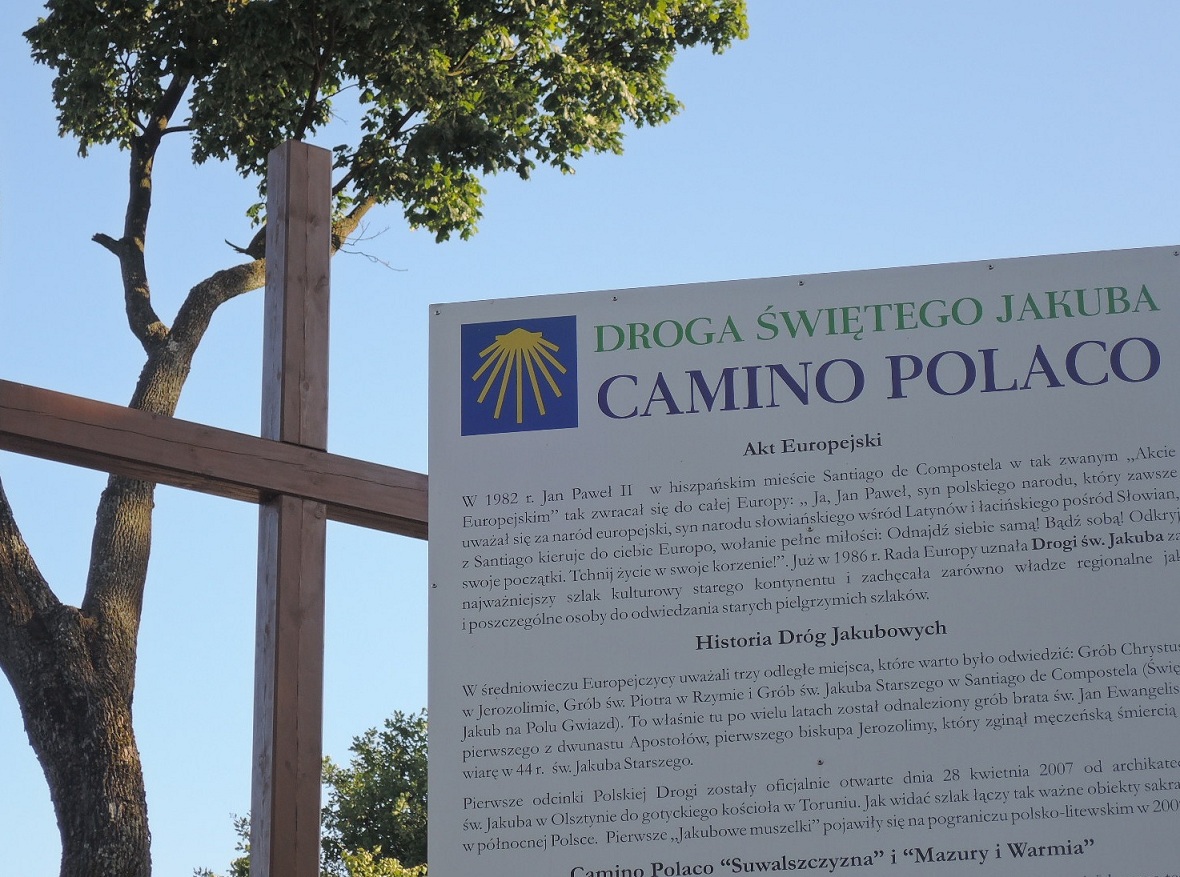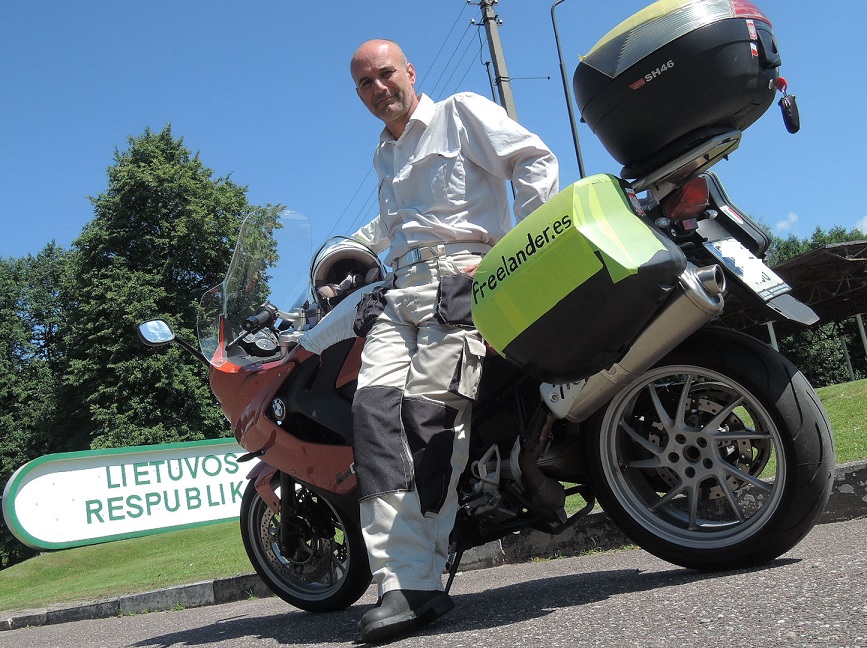Chance has had it so that, aiming for a secondary border crossing to Lithuania from Bialystok (where I stayed the last few days), I ended up in the small town of Sejny (ten kilometres away from the Baltic country) the very day of their local annual holiday.
It’s been fun to watch the parade with majorettes –something I haven’t seen since my early childhood– and the local wind-percussion band behind, and to loiter around the fairground, on the esplanade by the monastery’s church, nosing about the stands that offer traditional Polish food, while on the stage nearby a nostalgic flavoured musical group plays songs of unmistakably slavic melodies. Clic on the photo below for a short charming video.
The Polish stretch of the Camino de Santiago goes through Sejny, and I find it odd that, rather than naming it in Polish (Droga Świętego Jakuba) they use the Spanish expression Camino Polaco, meaning Polish Camino. These Poles have funny criteria when it comes to translations or adopting foreign words. Recently, for instance, I heard of a new street they’ve named after the Star-wars hero Obi-Wan Kenobi, but only after declining it to genitive the Polish way, which results in a bizarre Obi-Wan Kenobego street.
Borders, always defended with such a patriotic zeal and often at the expense of so many lives, aren’t but the fancy outcome of changeable laws that only seldom reflect a social reality.
Sejny was founded during the early middle ages by Baltic tribes, then was disputed along the late middle ages between Lithuanians and Teutonic knights, and only much later, on the XVIIIth century, Poles came claiming rights over this land and fighting battles to get it. Also the jolly Sweds were here, devastating the town to its ashes; and Prussian imperialists as well, and so did the omnipresent Russians.
It was finally the whiny Polish who got away with it after WWII; but at some point of history all the aforementioned nations have claimed these lands, and despite Sejny being a small town, economically irrelevant, it has been for centuries the scenario of struggles and victim of destructions, shifting hands quite often. Such is the doom of border lands. On the other hand, I find it quite meaningful the fact that, after every devastation suffered, it was the monks who –with their humble and patient work– brought it up again, settling down and rebuilding their monasteries where fear of war made the population run away.
On a side note, it’s irksome to see this modern fashion of Church-hating visceral Antichrists want to annihilate our religion (our culture!) and erase from our societies all traces of it, ignoring that their very selves would probably not exist had it not been for Christendom! Or as if they could change the past by modifying the present, such an Orwellian idea…

Peculiar fortified Dominican monastery in Sejny, the only building to survive the Swedish devastation.
The hotel where I stay in Sejny, despite the evident signs of having been updated, still preserves some of its original 70’s flavour in style and furniture. Clean and decent, I find the price ridiculously low, telling of the neighbouring Baltic countries.
On the next morning, the first thing I do I buy Lithuanian currency, which gets done painlessly in one of the several kantors (exchange offices) existing in town. Poland is one of the best countries I know for currency exchange, as there is never shortage of kantors, which don’t charge a fee and have a quite fair margin, sometimes as low as 0,2 %.
Despite the similarities of most Western countries, every time I cross a border I feel some excitement, as of a surprise anticipated. What shall I find behind?, how the roads will be?, how are the people’s lives?, what’s their language like?, will they be friendly or hostile?, shall communication be easy..?
The border where I’m crossing to Lithuania is totally devoid of police or customs officers; only the facilities are there, and they give me a foreboding of poverty… But I’m leaving it here for the moment. Whatever I am to find in Lithuania, that will be the matter for my next chapter.




Thanks! Well, to tell you the truth, I felt a bit scared by majorettes as a child, and I still preserve that feeling somewhere deep in my subconscious.